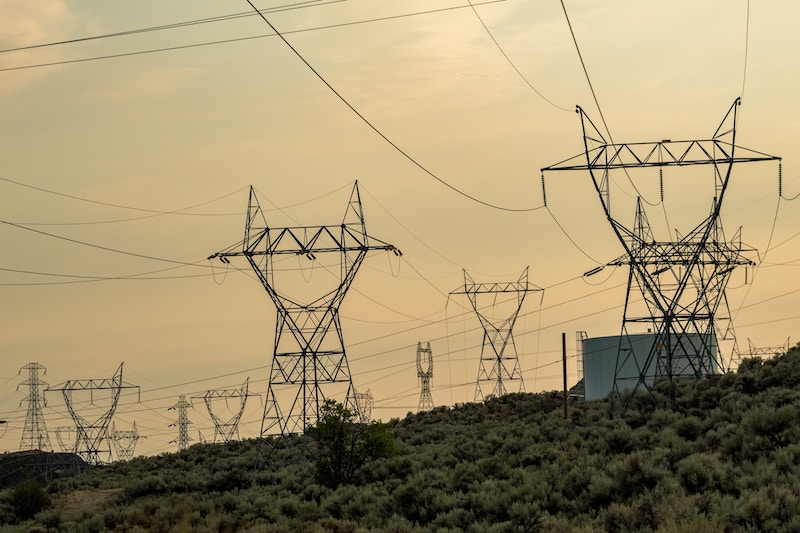Powering your business: choosing between fixed and variable energy rates
21 September 2023
As a business leader, you likely feel energized by discussions about expanding your business or finding ways to target new customers. Sitting down to dig through old energy bills and find ways to cut your costs is less exciting, but adjustments to your energy procurement present a fantastic opportunity to save money. The path your energy procurement plan will take hinges on whether to opt for a fixed or variable-rate energy contract. Understanding the pros and cons of each option can help you choose the energy plan that best fits your business’s operations and budgeting needs.
Fixed versus variable: What’s the difference?
Fixed-rate energy plans are the more traditional of the two options. With a fixed-rate plan, you pay a set rate for your electricity or gas per unit used. Regardless of fluctuations in the energy market, your costs are unchanged for the duration of your contract.
With a variable, or floating-rate energy contract, your price per unit will vary depending on market conditions. You pay the rate at the time you purchase the energy. Your unit cost will fluctuate during the length of your contract, meaning that you can see significant differences from bill to bill even if your consumption stays the same.
Fixed-rate contract advantages
Budget certainty
With a fixed-rate contract, your price is locked in. That means you always know what you’ll be paying. As long as you correctly estimate your usage, you can predict your expenses throughout the year and budget accordingly. For businesses that operate on thin margins and need to predict costs accurately, this predictability is a key feature of fixed-rate contracts.
Immunity from increases
Signing up for a fixed-rate plan makes your business immune from market fluctuations during the length of the contract. There will be no surprises to your bottom line if political instability, increased demand, natural disasters, or other conditions cause energy rates to spike.
Fixed-rate contract cons
Can’t take advantage of decreases
Fixed-rate contracts give you immunity from increases. However, you are also shielded from decreases. Energy costs might drop during a mild winter with lower-than-expected demand. If your rate is fixed, you can’t take advantage of the price drop in the energy market. Being locked in works in your favour if prices increase but works against you if they drop.
Timing
With a fixed-rate contract, you get one chance to lock in prices. If they are high when you sign your contract, you are stuck paying that price until it is time to renew. A competitor who signs their energy contract even just a few weeks earlier or later could have a competitive advantage because they pay less than you.
Risk premium
Just as you can’t be sure what energy prices will do in the coming months and years, neither can the energy providers. Signing a contract to provide your energy at a fixed rate for several years presents a risk for them. If their costs double, they lose money because they must still keep your price the same. Providing a fixed rate for you is a risk for them. Thus, fixed-rate contracts typically charge a premium that helps energy providers hedge against this risk. In most cases, the longer your contract is, the more risk there is to the provider, and the higher the premium you will pay for the ability to lock in a price.
Variable-rate contract advantages
No or lower risk premium
The energy providers’ risk is lower with a variable-rate contract than with a fixed-rate one because your energy price adjusts as market pricing changes. Therefore, they won’t bake any or as much risk premium into your rates.
Ability to react to market conditions
Since you haven’t locked in your energy rate for the duration of your contract, you can take advantage of dips in the energy wholesale market, paying less when prices are low. You can even channel your use or make larger gas purchases during price dips.
Variable-rate contract cons
Budget Uncertainty
Energy prices are constantly changing, making it challenging to predict your energy expenditures with a flexible-rate contract. In some months, your costs could be significantly higher than others. If inconsistent spending is problematic for your business, a fixed-rate contract might be a better choice.
Risk of increases
A flexible-rate contract could save you money, but it could also cost you more if prices rise quickly. There is inherently more risk associated with this type of contract due to volatility in energy markets. Expect your energy prices to change and be prepared for the possibility of significant increases.
Another option
We’d be remiss if we didn’t mention a third option: the hybrid. Many energy providers will allow you to fix part of your consumption and remain floating on the rest. You might lock in a fixed rate for half your expected monthly energy usage and leave the rest at variable pricing. This hybrid option offers some stability and predictability while also allowing you to take advantage of some of the upsides of a variable-rate contract.
There are many variations in contract types. When making energy procurement decisions, carefully consider each option and how it works with the specific needs of your business. There’s no one right answer: fixed, variable, or a combination of the two all have advantages and disadvantages.
The key to making the right choice for your company is understanding your energy use and budget requirements and determining which option best fits your needs and goals. If you need assistance choosing a provider and energy plan, commercial energy consultants can help with that evaluation process to ensure you sign up for the best option for your company.



